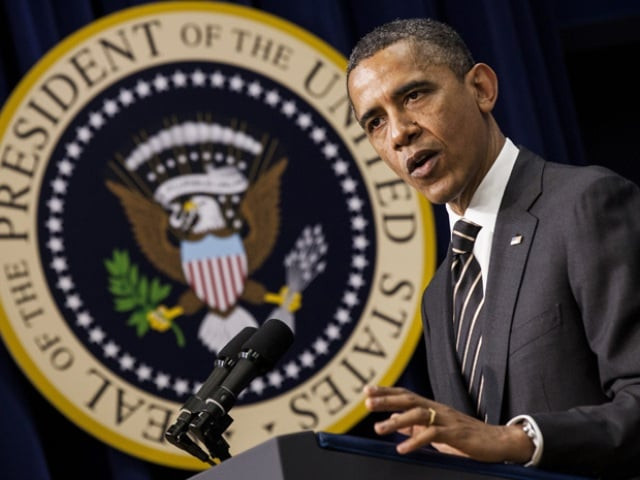One can't help but wonder what the elections have in store for the rest of the world, Pakistan in particular.
I am sure all of us can recall how, back in 2008, President Obama campaigned on the noble promise of ending the wars in Iraq and Afghanistan, dismantling Guantanamo Bay, and providing universal health care to all US citizens.
However, the real picture today is far different from what he had promised.
In Afghanistan, Obama has made things unequivocally worse. Turning 180 degrees on his promise, he ordered the sending of another 30,000 soldiers to Afghanistan on December 1, 2009; the US is yet to withdraw troops from there.
Moreover, the recent unfolding of events like the US marines urinating on Afghan corpses, and a US soldier massacring 17 Afghan civilians are big death blows to the US "humanitarian" mission and have created huge tensions between the two countries.
Regarding the latter, Hamid Karzai stated:
"This is an assassination, an intentional killing of innocent civilians and cannot be forgiven."
Obama has also turned back on his promise to close down Guantanamo Bay and to reverse the Bush administration's practice to indefinitely detain the "so called" enemy combatants. Instead, Guantanamo Bay remains open and Obama has expanded this program of indefinite detention; taking it from Cuba to a massive air-force base at Bagram in Afghanistan.
Here is an interview with Colonel Morris Davis, chief prosecutor of the Gitmo war trials, where he talks about Bagram and Guantanamo.
[[http://www.youtube.com/watch?v=nl_483E_iA4]]
Coming to the pretence of the Iraq war, we all know that it was a scam to begin with and Obama hasn't really fully withdrawn from Iraq either. In the wake of it's carnage and destruction, the US has in fact left behind the largest embassy in the world.
An interview with Ranjit Singh Kalha, former Indian Ambassador to Iraq (1992-1994), regarding this issue is given below:
[[http://www.youtube.com/watch?v=gVuZ6cfhmr8]]
To add to the flare, Barrack Obama has also unconstitutionally taken the country to war in Libya and has perpetually bombed the western frontier of Pakistan with drones, killing thousands of innocent civilians.
For better or for worse, Obama's approval rating now stands at about 47 percent, and there's a good chance that we may not see him for a second term in office.
However, what about the other candidates ?
Mitt Romney seems to be leading the pack on the Republican side, followed by Rick Santorum, Newt Gingrich, and Ron Paul.
For Pakistan, Mitt Romney might actually be good since his views on our country have been fairly consistent over the years. Romney comes from a rich business background and sees Pakistan as an investment opportunity that can be capitalised upon. Earlier in 2007 he had said:
"In places like Pakistan, America needs to work not just on a military front...We need to help make sure that they have the rule of law, water projects, bridges built."
The reader should be reminded that the Republican Party is basically the pro-Israel and neo-conservative party. Therefore, at the war front there is little or no difference amongst the top three Republican candidates. The policy of the Bush and Obama administration in the Middle-East is likely to continue unfettered, drone strikes and unrest in the western frontier of Pakistan will also continue, and Palestinians will just have to get used to being on the wrong end of the hockey stick.
Trailing in the last place is a funny candidate, Ron Paul. He's in the Republican party which ideally means that he should be on the far-right; ironically, he happens to be a classical libertarian who believes in a small and constitutionally limited federal government.
He has a non-interventionist foreign policy and believes that 9/11 was a direct consequence of American interventionism. Paul also wants a complete withdrawal of US troops from all foreign countries, and a halt of all US military adventures abroad.
The downside?
Well, he is also a strict fiscal conservative. Ron Paul in office means no war, but it also means no foreign aid to Pakistan-Israel alike. So, that's the end of everyone's free lunch.



COMMENTS
Comments are moderated and generally will be posted if they are on-topic and not abusive.
For more information, please see our Comments FAQ